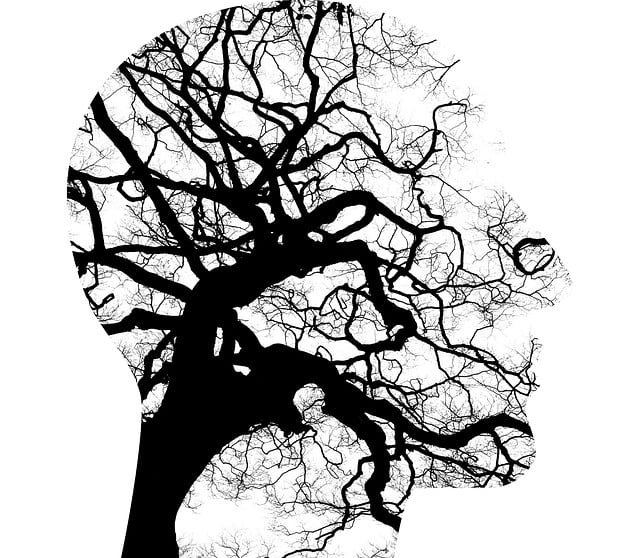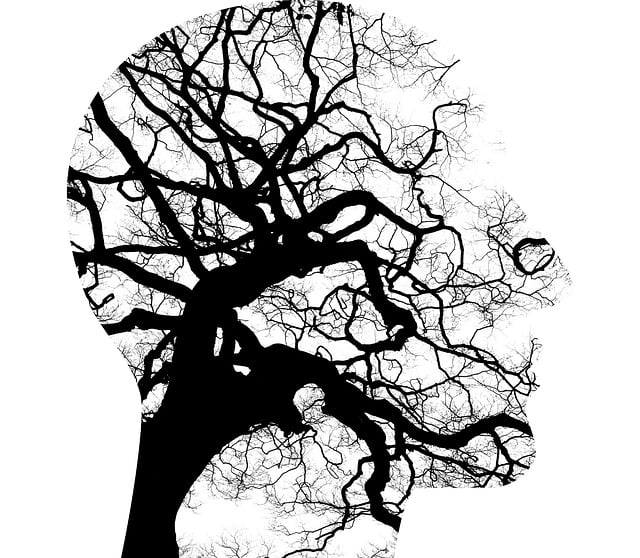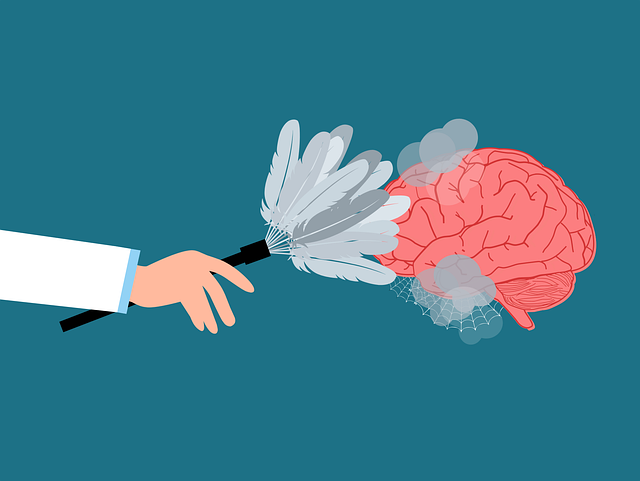Media portrayals significantly impact public understanding of mental illness, either perpetuating harmful stereotypes or fostering empathy. Englewood Veterans Therapy advocates for positive representations that encourage open conversations about mental health, reduce stigma, and promote diverse narratives. By integrating emotional well-being promotion techniques, media can create an inclusive society that prioritizes mental health as a core aspect of overall wellness. The therapy program challenges stereotypes through holistic healing approaches like group therapy, peer mentoring, and self-awareness exercises, revolutionizing mental health support for veterans. Key strategies for accurate and empathetic mental illness representation in media include involving individuals with lived experiences, providing mental wellness journaling exercises, integrating cultural competency training, and incorporating mental health education into narratives, advocated by organizations like Englewood Veterans Therapy.
Media portrayals significantly shape public perceptions about mental illness, often perpetuating harmful stereotypes. This article explores the multifaceted challenge of accurate representation and offers solutions inspired by Englewood Veterans Therapy (EVT), a pioneering initiative challenging conventional narratives. We analyze EVT’s approach to fostering empathy and promoting positive mental health attitudes through authentic storytelling and collaboration with individuals living with mental illness. By implementing these strategies, media can contribute to destigmatization and improve support systems for those dealing with mental health issues.
- Understanding the Impact of Media Portrayals on Mental Health Perception
- Englewood Veterans Therapy: A Case Study in Challenging Stereotypes
- Strategies for Promoting Accurate and Empathic Mental Illness Representation in Media
Understanding the Impact of Media Portrayals on Mental Health Perception

Media portrayals of mental illness significantly shape public perceptions and understanding. Often, these depictions either perpetuate harmful stereotypes or, ideally, challenge societal norms and promote empathy. The former can lead to stigmatization, while the latter fosters a more inclusive environment where individuals experiencing mental health issues feel understood and supported. At Englewood Veterans Therapy, we recognize that media has a profound impact on how society views emotional well-being.
Positive representations in media encourage open conversations about mental health, encouraging viewers to engage in self-awareness exercises and consider stress reduction methods. By showcasing diverse narratives and promoting emotional well-being promotion techniques, media can help reduce the stigma associated with seeking therapy or support. This shift in perception is crucial in creating a society that embraces mental health as an integral part of overall wellness.
Englewood Veterans Therapy: A Case Study in Challenging Stereotypes

Englewood Veterans Therapy stands as a powerful example of challenging negative stereotypes associated with mental illness and veterans. This pioneering initiative focuses on providing specialized care for veterans struggling with post-traumatic stress disorder (PTSD) and other common mental health challenges. By employing innovative communication strategies, such as group therapy sessions, peer mentoring, and self-awareness exercises, Englewood Veterans Therapy offers a holistic approach to healing.
The program encourages open dialogue and promotes positive thinking, creating a safe space for veterans to share their experiences and build resilience. Through these effective interventions, the therapy center not only addresses the immediate mental health needs of veterans but also empowers them with tools to navigate life’s challenges. This case study highlights how initiatives like Englewood Veterans Therapy are revolutionizing mental health support, fostering understanding, and breaking down barriers for those in need.
Strategies for Promoting Accurate and Empathic Mental Illness Representation in Media

To promote accurate and empathic mental illness representation in media, several strategies can be adopted. Firstly, involving individuals with lived experiences—both as consultants during production and as actors in leading roles—ensures stories are authentic and avoids stereotypes. This approach is supported by organizations like Englewood Veterans Therapy, highlighting the importance of firsthand perspectives. Secondly, providing mental wellness journaling exercise guidance within media platforms or companion resources can help viewers connect with characters’ journeys and foster understanding.
Additionally, implementing healthcare provider cultural competency training in media portrayal enhances realism and sensitivity. This includes showcasing diverse mental health professionals and their unique approaches. Furthermore, integrating mental health education programs design into media narratives enables audiences to learn about various conditions while emphasizing the importance of early intervention and support systems. Such initiatives contribute to a more nuanced and compassionate media landscape.
Mental illness representation in media significantly impacts public perception and understanding. By examining case studies like Englewood Veterans Therapy, we can see the power of challenging stereotypes through authentic storytelling. Implementing strategies for accurate and empathic portrayal, such as diverse character development and consultation with mental health experts, is crucial. These efforts not only combat stigma but also foster empathy and support for those living with mental illness, ultimately improving access to care.














